Vaccine Types

Pneumococcal
What is it?
Pneumococci bacteria live in the nose and throats of people of all ages. It is most serious for infants, young children, the elderly and people with certain illnesses. Pneumococci commonly infect the middle ear and the sinuses. While less common, pneumococci can also infect more serious areas of the body like the lungs (pneumococcal pneumonia), central nervous system (pneumococcal meningitis), and blood stream (bacteremia or sepsis). Pneumococcal symptoms depend on the area of the body that is infected.
Why is it important?
Pneumococcal infections are the most common invasive bacterial infections in children in the United States.
Progress
Studies have shown that the conjugate vaccine reduces the incidence of invasive pneumococcal disease, pneumococcal pneumonia, and ear infections in infants and children.
Before the pneumococcal vaccine was added to the U.S. childhood immunization schedule in 2001,
- there were 3,300 cases of pneumococcal meningitis (1 in 10 cases were deadly);
- there were 13,000 blood infections;
- 100,000-135,000 people were hospitalized due to pneumonia;
- there were 5-6 million ear infections in kids under five each year in the U.S.; and
- 14% of people who were hospitalized due to pneumococcal disease died.
By 2007, pneumococcal vaccine had reduced the incidence of disease caused by pneumococci bacteria by 99%. In 2010, the vaccine was updated to protect against six additional strains for a total of 13 strains.
Vaccine Recommendations
There are more than 90 types of pneumococcal bacteria; the vaccine, PCV13, protects against 13 strains. These 13 strains cause the most severe infections in children.
Pneumococcal conjugate vaccine is given to children when they’re at greatest risk for severe diseases caused by pneumococcal infection: at two, four and six months, with another dose between 12 and 15 months.
Side Effects
No moderate or severe reactions have been associated with this vaccine. However, a vaccine, like any medicine, could cause serious problems such as severe allergic reaction. The risk of this vaccine causing serious harm is extremely small.
Mild problems can include:
- Drowsiness or loss of appetite (50%)
- Redness or tenderness where the shot was given (50%)
- Swelling at injection site (1 in 3)
- Mild fever (1 in 3) or high fever (1 in 20)
- Fussiness or irritability in infants (8 in 10)
Influenza
Influenza
Influenza (flu) is a highly contagious viral upper respiratory illness. Flu may be complicated by other risk factors, including pneumonia. [+] more
|
Hepatitis B
Hepatitis B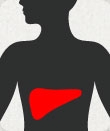
Hepatitis B virus (HBV) affects the liver and is primarily spread through blood and bodily fluids. Acute HBV infection can lead to chronic HBV and liver damage. [+] more
|
Polio
Polio
Poliomyselitis (polio) is an extremely contagious viral infection that affects the nerve cells of the brain stem and spinal cord and can lead to paralysis. [+] more
|
Diphtheria
Diphtheria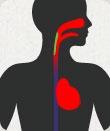
Diphtheria is a bacterial respiratory illness that causes a thick covering in the back of the throat, leading to breathing problems, paralysis, or heart failure. [+] more
|
Rotavirus
Rotavirus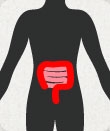
Rotavirus is a viral infection of the digestive track, and is the most common cause of severe diarrhea and vomiting in infants and young children. [+] more
|
Pneumococcal
Pneumococcal
Pneumococcal bacteria live in noses and throats of people of all ages. Pneumococcus can infect the middle ear, sinuses, lungs, central nervous system and bloodstream. [+] more
|
Measles
Measles
Measles is a highly contagious viral respiratory infection that causes a total-body skin rash and flu-like symptoms. [+] more
|
Mumps
Mumps
Mumps is a highly contagious viral infection that can affect many parts of the body. The hallmark sign of mumps is swelling of the salivary glands. [+] more
|
Rubella
Rubella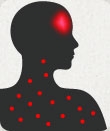
Rubella (German measles) is a contagious viral disease that can cause fever, rash, swollen glands and arthritis. Infection during pregnancy can lead to birth defects. [+] more
|
Tetanus
Tetanus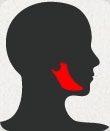
Tetanus (Lockjaw) is a bacterial infection that affects the nervous system and causes painful tightening of the muscles all over the body. It is spread through contact with contaminated surfaces. [+] more
|
Pertussis (Whooping Cough)
Pertussis (Whooping Cough)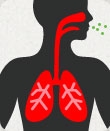
Pertussis (Whooping Cough) is a highly contagious bacterial respiratory disease. Pertussis causes violent coughing spells that make it hard to eat, drink or breathe, and is especially severe in young infants. [+] more
|
Chickenpox
Chickenpox
Varicella (Chickenpox) is a highly contagious viral infection characterized by a blistering rash that can cover the entire body. Complications include skin infections, pneumonia and brain swelling. [+] more
|
Hepatitis A
Hepatitis A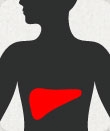
Hepatitis A (HAV) virus attacks the liver, and is spread through stool of an infected person by direct contact or by contaminated food or drink. [+] more
|
Meningococcal
Meningococcal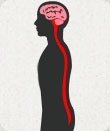
Meningococcal disease is a severe bacterial infection that causes inflammation of the membranes covering the brain and spinal cord (bacterial meningitis) and blood poisoning (septicemia), and requires immediate medical attention. [+] more
|
Hib
Hib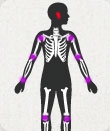
Haemophilus influenza type b (Hib) bacterium can infect a child’s skin, joints, bones and ears. Hib can lead to a variety of infections including pneumonia, bacteremia, and meningitis. [+] more
|
HPV
HPV
Human Papillomavirus (HPV) is the most common sexually transmitted virus in the United States. About 40 types of HPV can infect the genital areas of males and females. A few types can lead to cervical and other cancers. [+] more
|




